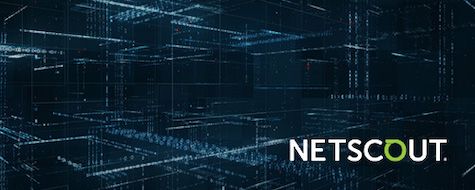|
|
|
|
|
|
|
|
|
|
Cyber Daily: How to Pass On Your Passwords When You Die
|
|
|
|
|
|
|
|
Hello. Just as you set up a living will or a power of attorney, it’s a good idea to set up your online accounts so that someone else can access them after you’ve passed on.
Dalvin Brown, WSJ Personal Tech reporter, writes that if you haven’t set up digital-legacy contacts or other means to share accounts after your death, your heirs typically have to go through a lengthy process to gain access to your data. But it doesn't have to be that way.
More below.
|
|
|
|
|
CONTENT FROM OUR SPONSOR: Netscout
|

|
Don’t just secure your network. Defend it.
You’ve heard of network flooding. Now learn why taking the Domain Name System (DNS) infrastructure for granted could be opening the floodgates for a “water torture” attack.
Read More

|
|
|
|
|
|
|
|
Among the tech companies that provide digital-legacy tools to let users bequeath account access to others are Apple, Google and Facebook parent Meta Platforms. They work by letting you designate who can download your data or access your profiles after your death. The legacy-contact tools typically don’t require you to share your passwords with your heirs, but you can also set up password managers to share your account credentials, and other private information, upon your death.
|
|
|
|

|
PHOTO ILLUSTRATION: CHAYA HOWELL/THE WALL STREET JOURNAL, ISTOCK
|
|
|
|
|
1Password, LastPass and some other password managers—which store your current logins and can generate unique, complex passwords for all accounts you link to the service—let you designate digital heirs who can access your account information. No matter the password-storage method you use, experts say you shouldn’t make it too difficult for your trusted contacts to know what accounts you have, and how to log in.
|
|
|
|
|
|
|
|
|
|
Lithuanian websites targeted. Russian hackers known as Killnet said they launched denial-of-service attacks against government sites to retaliate against Lithuania's support of sanctions that limit goods going into Russia. Commercial sites were also targeted. (Reuters)
Iranian steel company stops production after cyberattack. An anonymous hacking group claimed to have hit Khuzestan Steel Co., forcing the manufacturer to halt work. The company acknowledged the incident Monday. Khuzestan Steel's chief executive was quoted in a local publication saying the attack wouldn't affect customers. (Associated Press)
|
|
|
|

|
PHOTO: KIYOSHI OTA
/SHUTTERSTOCK
|
|
|
|
|
Toyota supplier breached: The website of TB Kawashima was down Monday night after the Japanese fabric maker said a subsidiary was hit in a cyberattack. The LockBit ransomware gang is offering to sell data it said is from TB Kawashima. The company supplies fabric to Toyota Motor Co. and aircraft companies and theaters, among others. (Bleeping Computer)
|
|
|
|
Hacked blockchain infrastructure provider offers $1 million to attackers who stole about $100 million in cryptocurrency last week. Harmony, which provides the Horizon Bridge, said it won't push for criminal charges against the hackers if they return the funds and reveal how they carried out the theft. (CoinTelegraph)
Read more:
|
|
|
|
|
|
|
|
|
|
|
Healthcare service provider warns 1.1 million patients their personal data was exposed. Seattle-based MCG Health LLC said it determined in March that an unauthorized party had obtained the information. The company is working with the FBI and has deployed additional monitoring tools to guard against similar incidents.
|
|
|
|
|
14
|
|
Number of months Aon PLC systems were intermittently accessed by a hacker, starting in December 2020. Compromised data includes Social Security and driver’s license numbers for 145,889 individuals. In what Aon said is a small number of cases, benefit enrollment information is also at risk.
|
|
|
|
|
|
|
|
|
|
|
|
|